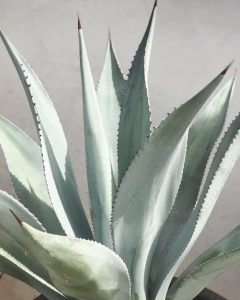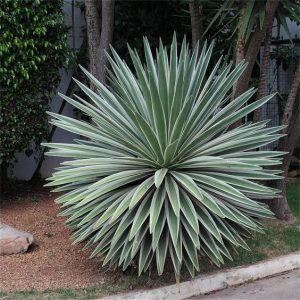- English
- Chinese
- French
- German
- Portuguese
- Spanish
- Russian
- Japanese
- Korean
- Arabic
- Irish
- Greek
- Turkish
- Italian
- Danish
- Romanian
- Indonesian
- Czech
- Afrikaans
- Swedish
- Polish
- Basque
- Catalan
- Esperanto
- Hindi
- Lao
- Albanian
- Amharic
- Armenian
- Azerbaijani
- Belarusian
- Bengali
- Bosnian
- Bulgarian
- Cebuano
- Chichewa
- Corsican
- Croatian
- Dutch
- Estonian
- Filipino
- Finnish
- Frisian
- Galician
- Georgian
- Gujarati
- Haitian
- Hausa
- Hawaiian
- Hebrew
- Hmong
- Hungarian
- Icelandic
- Igbo
- Javanese
- Kannada
- Kazakh
- Khmer
- Kurdish
- Kyrgyz
- Latin
- Latvian
- Lithuanian
- Luxembou..
- Macedonian
- Malagasy
- Malay
- Malayalam
- Maltese
- Marathi
- Mongolian
- Burmese
- Nepali
- Norwegian
- Pashto
- Persian
- Punjabi
- Serbian
- Sesotho
- Sinhala
- Slovak
- Slovenian
- Somali
- Samoan
- Scots Gaelic
- Shona
- Sindhi
- Sundanese
- Swahili
- Tajik
- Tamil
- Telugu
- Thai
- Ukrainian
- Urdu
- Uzbek
- Vietnamese
- Welsh
- Xhosa
- Yiddish
- Yoruba
- Zulu
- Kinyarwanda
- Tatar
- Oriya
- Turkmen
- Uyghur

Kano kano He tipu tawhito me te tipu ahurei me te koiora me te florescence fruity. Ko te mea e ono tekau miriona tau te roa, kaore te mea tino ataahua te tipu o Agave engari he nui hoki nga hononga ahurea me nga tikanga o mua.

Tuhinga o mua
Te hitori o Agave: Te Takenga
Tata ki te ono tekau miriona tau ki muri, kua timata pea te hitori o te agave i te hanganga o te ao tuatahi. Kua timata kee te tipu o tenei tipu i roto i nga wa o mua i te wa o mua. Ko te agave he tipu a Agave, he mema o te puninga Agave me te whanau Asparagaceae, kua tipu haere ona ahuatanga tipu me nga rau i runga ake i tona ahuatanga whanaketanga.
Nga tohu motuhake ki a Agave
Nga ahuatanga rau
Ko nga rau o te tipu Agave he kaha, he ataahua. Ko te maaro o te mata o te parauri pouri ka rite ki te rosette whakaminamina. I tua atu, kei roto i nga taha o nga rau nga niho iti rite ki te tataramoa. Ko te ahua mohoao o Agave i ahu mai i enei huānga, he ahua ahurei ano hoki. Ka pakeke haere te tipu, ka piki haere tonu te whanui o te karauna o nga rau, ka puta he awenga tirohanga whakahihiri.
Nga ahuatanga o te putiputi
Ma te rekoata mo te pikinga teitei rawa i tuhia e tae atu ana ki te 3.9 mita, ko te tipu o Agave he whakaaturanga tino nui. He kaha te puawai o te puawai ka hanga i tetahi pacle nui i te wa e puta ana te pua. He nui ano hoki te tatau o nga puawai, he tino ataahua. Ahakoa ko nga kohungahunga kua puawai rereke, ka awhina i a ia me te pikinga o te pikinga teitei me te manawa o te ao.
Ki te tauraki me te whakaaro ki te urutau
He kaha te manawanui mo te tauraki me te tino wera, ka tupu tonu i runga i nga oneone maroke-mate. I te mea ka eke ratou ki tawhiti, ka whai hua nga pakiaka hei utu i te wai mai i te whenua. I te nuinga o te wa ka tipu haere, ka mau te whitu ki te tekau ma wha tau ki te toro atu ki te kotinga kotinga. Ko te roanga o te waa e rere ana kia waru ki te wha tekau tau.
Ko te agave he uara rongoa.
He uara motuhake a Agave ki nga ahuatanga o te whakapaipai me etahi whakamahinga rongoa. I roto i nga maimoatanga e whakamahia nuitia ana mo tenei taonga - he reka ki te mahana, te kawa, me te kawa, te tangohanga pepeke, me te hemoti. I roto i nga mate kua tukinotia me te agave i roto i te rongoa tuku iho he karamu, he kowhatu, he mate mumura, ko te mate pukupuku, he pukupuku tipu, me nga tipu tipu. Ko nga tipu o te tipu te mea kei roto. Ko enei rongoa rongoa ka awhina i te agave kia tino nui i roto i te ao o te rongoa tuku iho.
Ko te Agave he pai hokohoko nui me te tohu ahurea.
Whakatipuranga o tequila
Ko te puna nui o te raw e whakamahia ana i roto i te hangahanga o Tequila ko te nui o te huka tipu-agave. Ko tetahi momo waina i hangaia i Mexico he tino rongonui mo tona reka rereke me te maeneene ko Tequila. Te tiimata me te tukatuka o te agave me te mahi ma te hurihuri me te whakakao, ko nga taahiraa o te mahi briw e tika ana kia aro nui. Ko nga taahiraa katoa o te Chain e kawe ana i te hitori me te ahurea o Mexico.
Tuhinga o mua
Ko Agave, ko te nuinga o nga tangata e whakaae ana, ko te "tipu motu" o Mexico. I tua atu, kua mau ki roto i te hitori me te ahurea o Mexico, e tohu ana i te whakahīhī o Mehiko mo to ratou iwi. I tua atu i tona ingoa nui i Haina, ko tequila, te waina o te motu o Mexico, e whakaatu ana ki nga toenga o te ao i te ahua ahurei me te tono e rongonui ana a Mexico.
Tuhinga o mua
Nga tikanga o te ahuwhenua
Ko te Agave pea pea he pai ki nga tikanga maroke, na reira ka tohutohuhia kia whakamahia te oneone onepu me te wai tika i te ahuwhenua. Kua kawemai a Agave me te whakatipu i roto i te maha o nga kawanatanga me nga waahi i te tonga me te tonga o Haina, ina koa i Yunnan, te waahi e pua ai te kaha me te whakarato hua. Mai i enei maroke maroke, ko nga raorao wera e whakarato ana i nga tikanga tipu tino, he tino pai te taiao o te agave hei whanaketanga.
Taipitopito whakapaipai me nga mahi tono
Ko te Agave he tipu tino ataahua i roto i nga kari ma te teitei o te pikinga me te waru o nga rau. Ka whakaatu pea a Agave i ana ahuatanga whakahirahira me te ahurei ahakoa he tipu whakapaipai i hangaia he tauira o nga waahi matomato ano he papa puawai, kari puawai, he puawai ranei. He tino pai tenei tipu mo nga take o te whakapaipai i roto i nga tini taiao rereke na te mea ka tau te kaha o te tauraki.
Nga paunga a Agave me etahi atu whakamahinga
Ko nga korero o mua o Central America e tohu ana kua whakamahia te agave ki reira mo nga mano tau. I nga wa o mua, kua kai te tangata i te meristem ngawari, ma i kitea i te kakau o te tipu agave ranei. He nui te māngaro i roto i tenei meristem. E rua etahi atu huarahi ki te reka o te agave ko te tunu me te tunu kai. Ko nga tangata e noho ana i te taha raki o Mexico ka whangai kararehe nga rau agave. Ko te kaha o Agave he mea nui ake i roto i nga whakamahinga hou me nga mea tuku iho.

Tipu o Agave
Ma te roa o te hitori, nga ahuatanga motuhake, me te hiranga ahurea, te tipu e ono miriona tau te pakeke - kua riro hei kaitakaro nui i roto i nga tipu whakapaipai me nga hua arumoni. I roto i te maha o nga waahanga, tae atu ki tana uara rongoa, whakauru ohanga, me te paanga ki nga whakaahua ahurea, kua whakaatuhia e te Agave tona huringa nui. I te wa ano he tipu me te whai huatanga o mua me te whai huatanga o mua, he mea matomato ano hoki a tawhio noa. Ka mohio tatou ki te hitori me te whakamahinga o te agave, ka kaha ake taatau ki te utu me te tiaki i tenei tipu ahurei.



